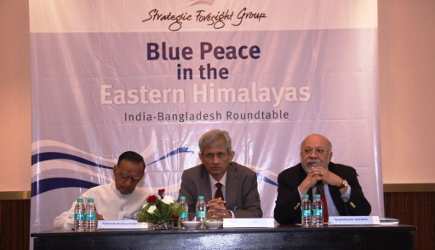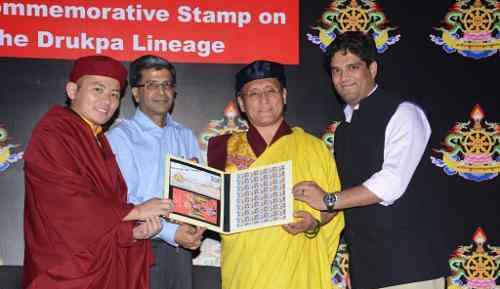India-Bangladesh Plan for Joint Rivers Commission
An India-Bangladesh Roundtable on Blue Peace in the Eastern Himalayas was held in Mumbai on 1-2 July 2013. It was convened by the Strategic Foresight Group and attended by 25 senior diplomats, Members of Parliament, former ministers and experts from India and Bangladesh.
The roundtable was co-chaired by Ambassador Tariq Karim, Bangladesh High Commissioner in New Delhi and Prof. Muchkund Dubey, former Foreign Secretary of India.
[ Also Read: 10 More Reasons I Love My Country India ]The roundtable took place at a time when relations between India and Bangladesh are improving, particularly since the visit of the Prime Minister of Bangladesh to India in 2010 and the Indian Prime Minister to Bangladesh in 2011.
There are unresolved issues with regards to trans-boundary water resources which need to be addressed urgently and earnestly in the spirit of good faith and cooperation that currently exists between the two countries.
[ Also Read: Can You be a Hindu or a Muslim Journalist? ]“The roundtable emphasized the importance of creating robust and sustainable institutions for collaborative water management which can withstand short term political dynamics,” said Dr. Sundeep Waslekar, president of Strategic Foresight Group.
In this context, the current functioning of the Joint Rivers Commission is extremely inadequate as there are in effect two parallel national river commissions, instead of one joint commission. It is necessary to establish an India-Bangladesh Joint Rivers Commission headed by a prominent Indian or Bangladeshi leader on an alternative basis.”
[ Also Read: Wanted: A Suitable Prime Minister for India ]It is necessary and possible to finalize the Teesta river agreement, bearing in mind the importance of environmental flows for sustenance of the river and ecological security of the basin.
However, in the long run, it is not feasible to negotiate a separate agreement for each of the 54 trans-boundary rivers between India and Bangladesh, it was stated.






